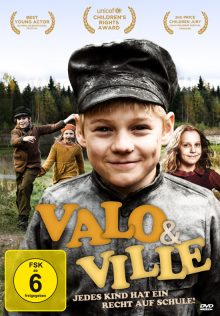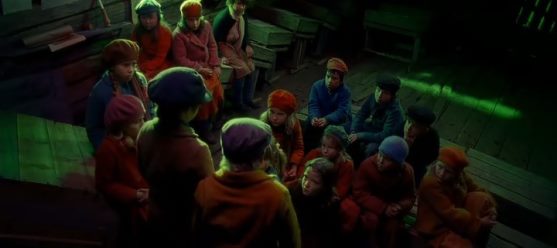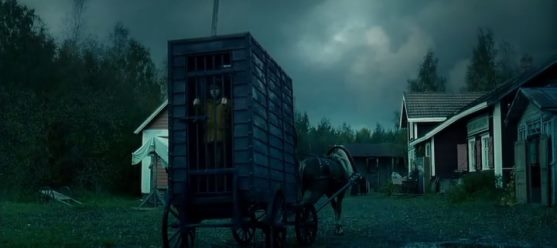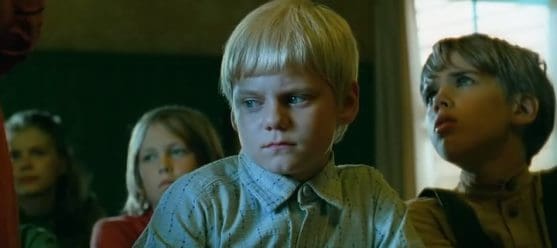 Based on a true story, the Finish Coming-of-Age movie Valo tells the story of nine-year-old Valo and his friend Ville who, observing the wrongdoings of the adults that surround them, decide to devote their youthful lives to the fight against evil.
Based on a true story, the Finish Coming-of-Age movie Valo tells the story of nine-year-old Valo and his friend Ville who, observing the wrongdoings of the adults that surround them, decide to devote their youthful lives to the fight against evil.
The action takes place in Finland in the early 1900’s, when the country is still part of the Russian Empire. Valo and his father are caught by the police during Bloody Sunday, a demonstration march against the Tsarist regime in Russia.
It turns into a massacre when the Imperial Guard opens fire against the peaceful demonstrators. Father and son are exiled to a remote village. Admittedly, if one is not familiar with the historical events that are addressed in the film, the story feels quite confusing. Bloody Sunday was referred to several times in the film, and I had to visit Wikipedia to find out its meaning. While the massacre is portrayed in the establishing shot of the film, its meaning and relationship to the follow up scenes is quite unclear.

Valo: The school
Life in the remote village to which Valo and his father are sent is strictly observed and controlled by Nikolai – a member of the secret police. I could not quite get what was so secret about him, since everyone knew his vocation. But Nikolai is always on watch and ready to act and punish anyone who dares to disobey him. Nikolai suspects that the school in the village has a bad influence on kids by inspiring rebellion and orders it closed. Uneducated people are controlled easily and control is Nikolai’s ultimate goal, as well as that of the regime he represents. Valo, who by that time had observed many injustices in his youthful life, decides to return to the children of the village the right to learn. A child himself, he believes that knowledge can change the world and is essential if one is to know the difference between good and evil.
So Valo befriends a local boy,Ville, and together they establish their own school – run by children and for children. Unfortunately, the children’s school is deemed illegal and the authorities do not hesitate to arrest its most notable member – Valo – regardless of his age.

Scene from Valo
I have mixed feelings about the film. The story, although inspirational, only began to make sense in the last twenty or so minutes, which I may have not waited for if I did not want to write this review. The bright colors typical of the Scandinavian cinema were present in the film, but for some reason they did not fit well with the subject matter. Neither did the soundtrack, which reminded me of Irish folk songs, and which were completely unsuitable for a story that takes place in Finland.
The child actors’ performances were quite average, with the exception of the young Joni Kehusmaa as Ville and Vili Järvinen as Valo. Much of the dialogue felt rather stilted and unnatural – especially that delivered by the children when addressing the adults in a moralizing manner. The story of Valo intrigued me, but failed to evoke any emotions – quite atypical for me for a narrative told from child’s point of view.

Vili Jarvinen as Valo
The story of Valo has potential, but the lack of background information and the non- convincing acting are faults hard to ignore. My understanding is that the intended audience for Valo are children – and I have no doubts that some may find it inspirational. And that is exactly where the Coming-of-Age value is to be found. But the film has to first manage to grab the attention of the youthful audience and hold it – which I suspect won’t happen.
Valo Official Trailer
http://youtu.be/0vgrVWXj7EM

Film title: Valo
Release year: 2005 – Periferia Productions Ky, Giraff Film AB, Sonet Film AB
Director: Kaija Juurikkala
Cast: Joni Kehusmaa, Vili Järvinen, Sara-Maria Juntunen , Alina Sakko, Eveliina Uusitalo and others